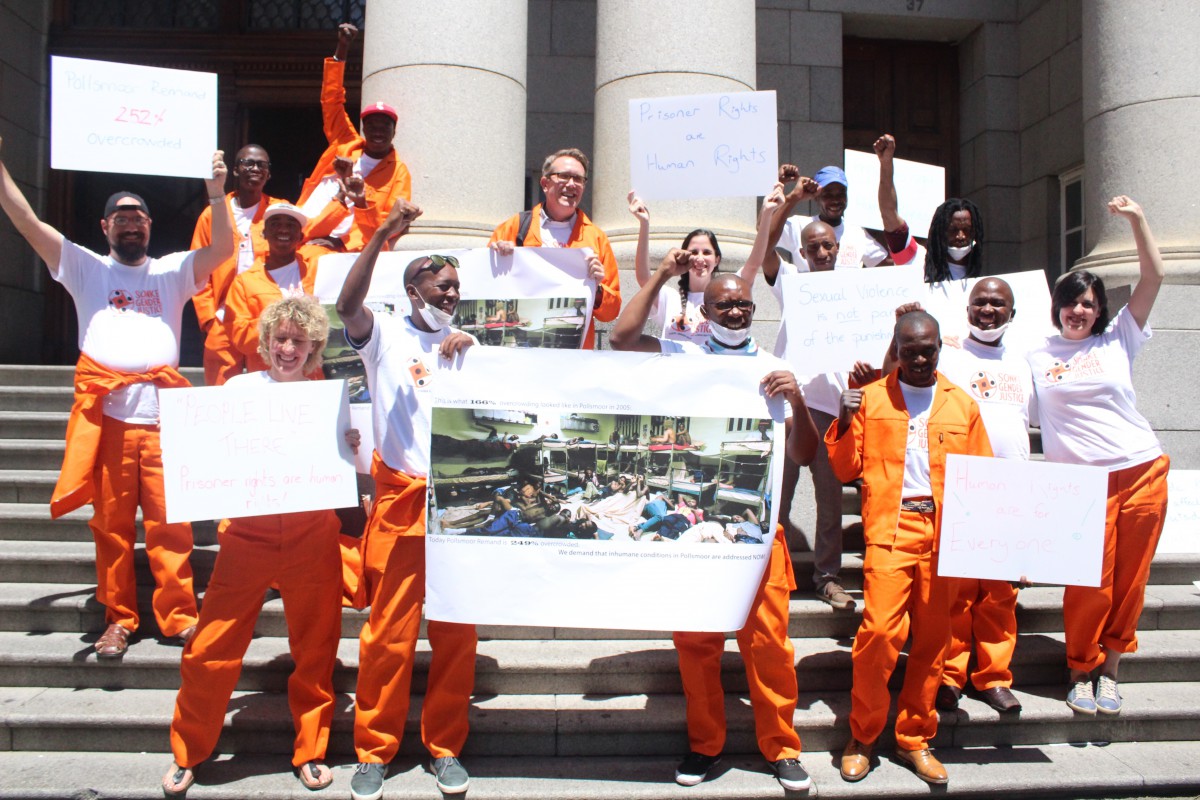The article below appeared on CNN on 06 December 2016
By David McKenzie
The image and the smell are seared into memory: Eighty-six men squeezed into a room designed for 19. So little space, they could only stand or squat.
Earlier this year, after gaining exclusive access to Pollsmoor Prison, the detainees told us it was a living hell.
“Animals could live like this,” said one, “not humans.”
And none of them, awaiting trial, was convicted.
Bland facade; hellish interior
Pollsmoor is a bland face-brick facility, surrounded by luxury wine estates and wealthy suburbs.
Nelson Mandela, its most famous inmate, once said it had a “modern face, but a primitive heart.”
Conditions in the remand center for inmates awaiting trial were a stain on the country.
In 2015, thousands were evacuated from the Cape Town prison after an outbreak of leptospirosis, a disease carried by rat urine.
For years, human rights campaigners have pleaded for conditions to change.
Now, a Cape Town High Court judge is ordering it.
Historic Judgment
In a scathing judgment, Judge Vincent Saldanha said the deplorable conditions in Pollsmoor were unconstitutional.
He gave correctional services two weeks to prove the court with a reason why they should not order a drastic reduction in numbers at the remand center immediately to 120% of capacity (currently, it is more than double that).
The court said exercise, nutrition, accommodation, and healthcare all need to be turned around.
Detainees complained that they were sometimes let outside only once a month for exercise. Many said they were held for relatively minor offenses or kept in detention because they couldn’t pay the equivalent of $50 bail.
“We are overjoyed with the result. In many respects, it is a historic ruling for prisoners’ rights in South Africa. And it sends a very important message,” says Clare Ballard of Lawyers for Human Rights.
“It came after a very long road. The breaches were grave. The plight of detainees cannot be put on the back burner any longer. They must be fixed urgently,” she added.
Other priorities?
With rampant unemployment, high crime rates, and stark inequality in the country, South Africa’s government has a lot to worry about.
But Prison rights advocates say they shouldn’t forget about the prisons. They say it is about fundamental human rights.
“Remember, these detainees are presumed innocent until proven guilty. These are people in extremely desperate conditions and they are innocent,” says Ariane Nevin from Sonke Gender Justice.
Members of Sonke, dressed in orange prison overalls, celebrated outside the high court.

Nevin says the overburdened prison system in South Africa feeds into the communities.
“The problems cycle in and they cycle out from prison,” she says.
Prison officials say the overcrowded system is the perfect recruiting ground for gangs. Acting head of the awaiting trial facility Cecil Jacobs said entire floors in the remand center at Pollsmoor are designated for the notorious “numbers gang”.
Each week at Pollsmoor, the prisoners awaiting trial line up behind the steel bars and get into the white and blue police trucks for trial dates across the Western Cape.
Court dates are often delayed; witnesses don’t show up; police sometimes don’t bring files.
A correctional services spokesman welcomed the judgment, but blamed the entire justice system.
“We have never shied away from the fact that overcrowding is a perennial challenge within our system and we are doing whatever it takes to try make it better. The challenge is remand detention. When you look at the huge area that Pollsmoor that is serving. It is not just correctional services alone,” said Singabakho Nxumalo.
Nevin believes the court judgment is just the first step in reforming South Africa’s prison system.
“I don’t think our victory stops here,” she said.